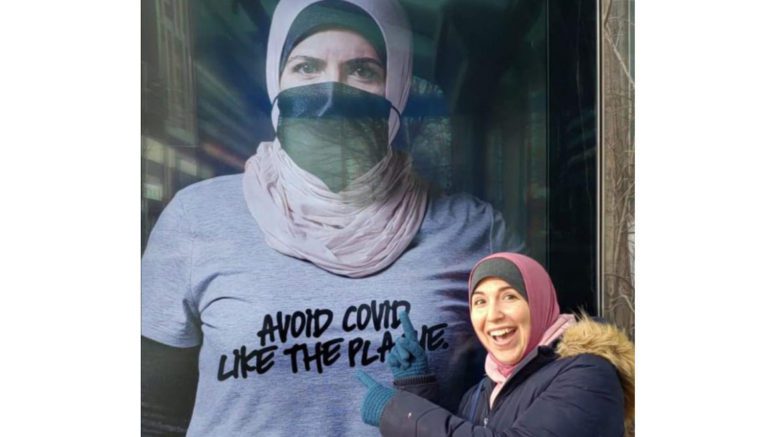It’s Hockey Night in Canada. The Toronto Maple Leafs are playing against the Montreal Canadiens. The oldest Canadian sports rivalry.
But what stands out is a commercial rolled out by Walmart Canada that features a Muslim-Canadian family with a hijabi mother-daughter duo.
For the first time, a Muslim family is being represented as the image of a modern Canadian family that shops at a place like Walmart. Apart from that, this image is being shown on what might be the most Canadian television broadcast.
The official version of the commercial was rolled out for broadcast on Jan.7.
As World Hijab Day marked its eighth year of establishment on Feb.1, the commercial incited a much-needed conversation about the representation of hijabi women in mainstream media.
“That’s why I’m doing what I’m doing, that’s why I’m trying to get myself out there,” says Layla Karim, who was featured in the commercial.
“I’m not doing it for the fame or the money, I’m doing it so that there is a person on the other side of the screen that’s going ‘OMG! That’s one of us’ the pure excitement of ‘Hey! Look we are being represented.’”
Karim, an executive assistant at Ransome Financial, has taken up acting as a side profession and hopes to give the much-awaited representation in media that hijabi women need. She was also featured in a video by the City of Toronto that encouraged people to practice safety measures regarding COVID-19. The video was rolled out on the official Youtube account for the City of Toronto in November.
“Getting a foot in the door, by saying, ‘Hey, we finally arrived in primetime television’ — that’s great,” said Mashoka Maimona, a journalist and former Human Rights Watch intern, who was thrilled to see the representation but she added, “At the same time, that shouldn’t be a metric that we measure ourselves on.”
Although mainstream media is going a step further to be inclusive, there is a long way to go.
According to many women who practise the hijab, mainstream media shows often portray hijabi characters as oppressed and make the issue that somewhere along the line the character has to take off the hijab to have a “normal” life.
“I mean it’s good that they are normalizing the hijab, but I don’t like the way they are doing it,” says Mubina Mustafa, a social media influencer who covers her face with a veil. “It seems like they don’t really understand the whole point of what the hijab is. They’re just seeing it as a fashion statement.”
This is why there is so much room for improvement because taking off the hijab is never really freeing, according to many Muslim women who practise the hijab.
“I don’t think taking off the hijab means more freedom,” Karim says. “If anything I found more freedom in wearing the hijab.”
She reports an incident a few days earlier when her daughter started a new coding class and ran up to her and said, “Mama, Mama, my teacher is a hijabi!!”
Her daughter’s reaction was for the “pure excitement that she feels when she sees someone like her to look up to,” Karim says. “Kids these days have that connection because the community is becoming more inclusive of people who wear the hijab.”
World Hijab Day was first established in 2013, by Nazma Khan, a Bangladeshi American, to encourage women from all backgrounds irrespective of their religions to wear and experience the hijab.
This movement was initiated as a step to advocate religious tolerance and understanding.
“Large parts of Canadian societies still don’t understand what Islam is or what Muslims are,” Maimona says. “From that perspective when I see that ad, it makes me happy that people are going to be presented with another idea of what a Muslim family is — a part of the Canadian fabric.”

